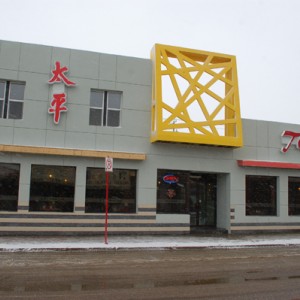Hunchback
Catalyst Theatre’s World Premier
The world premiere performance and run of Catalyst Theatre’s production of Hunchback, a musical conceived by the creative team of Jonathan Christenson and Brette Gerecke, happened this March in the Citadel’s Shoctor Theatre. Hunchback is a visual, auditory, and literary feast and feat, consummately delivered by a live four man band, a skilled production crew, and actors who also sing. All are dripping with talent. Edmonton is fortunate this way.
Both Christenson and Gerecke who faithfully morphed Hunchback through time from its source, Victor Hugo’s 1839 novel The Hunchback of Notre Dame, are also on the Catalyst team. Brette Gerecke is the production designer; Jonathan Christenson is the writer, director and composer.
Their creative synthesis has produced a play whose set has the feel and grittiness of Paris life in and around the Notre Dame Cathedral in 1842 combined with an overlay of historical fashion trends and musical genres, as well as contemporary sensibilities and lasting materials with global overtones. It’s as if the same stuff’s going on – beggars, ladies of the night, deformities hidden, scapegoats, victims. Gothic arches made out of lighted tubing are visually arresting, as are the complexities of the Catholic Church, which is portrayed as both a sanctuary and a prison.
The costumes are eclectic, fantastic, and historically representative of time. Hats abound, platform shoes, metallic this and that, the suggestion of steel wool reused. Quasimodo, the bell ringer and hunchback whose coiled metallic spinal deformity is visible outside his body, shows his pain and his pleasure in two riveting scenes. His cries of pain when he is being whipped are deep, palpable, and disturbing. When he shows the bells to Esmeralda, whom he loves because she is kind to him, he becomes childlike and tender introducing the bells as he would introduce friends.
Both Hunchback and its source explore the ways in which love, obsession, vulnerability, and control have been woven together in some human relationships. Or is what passes for love really love at all? A priest’s obsessive desire for a gypsy woman, her desire for a soldier who treats her badly, a deaf and deformed bell ringer’s vulnerability to love anyone who shows him what his limited experience interprets as kindness. Victor Hugo observes in the novel that love is “never stronger than when it’s most unreasonable.”






